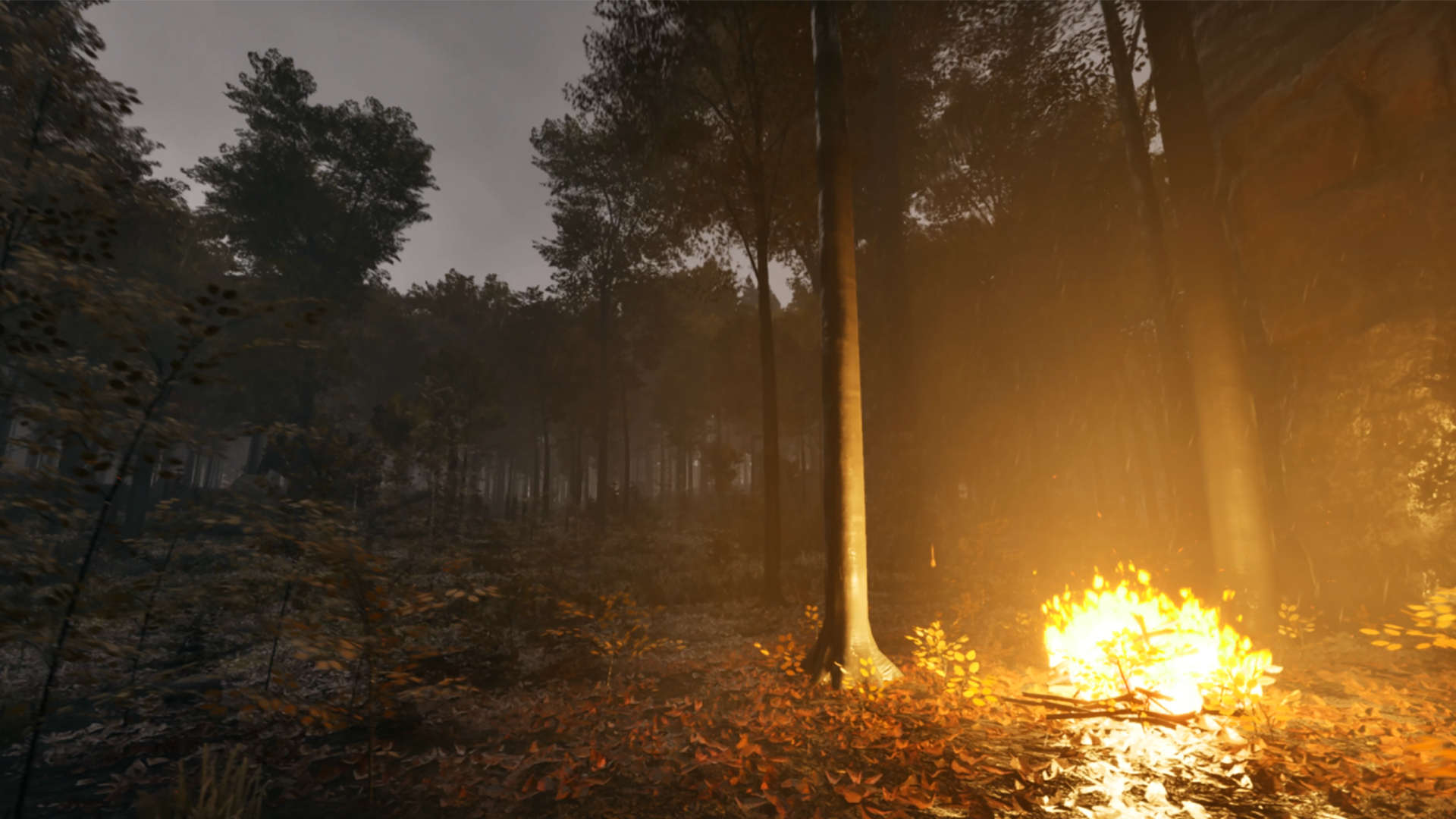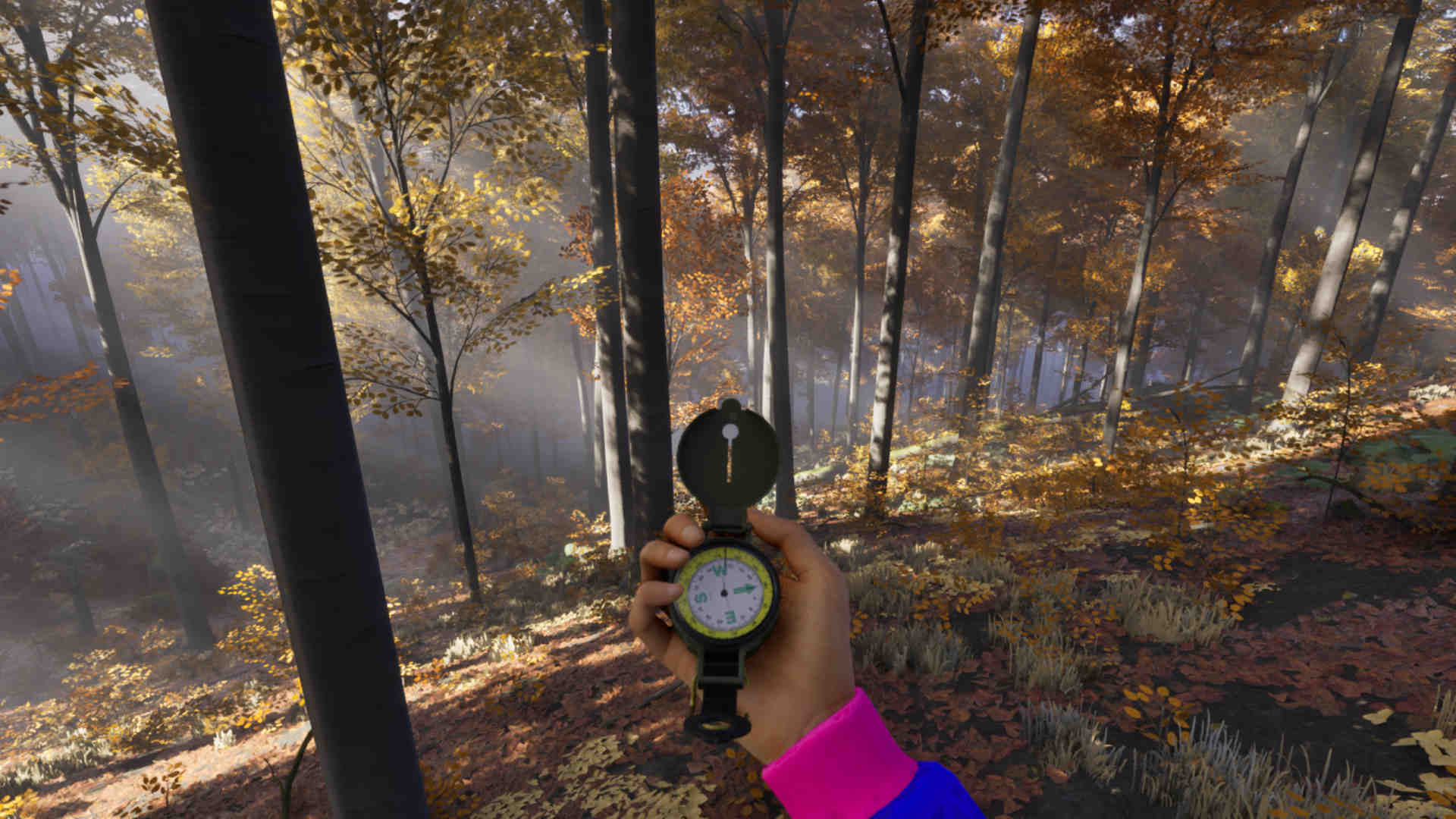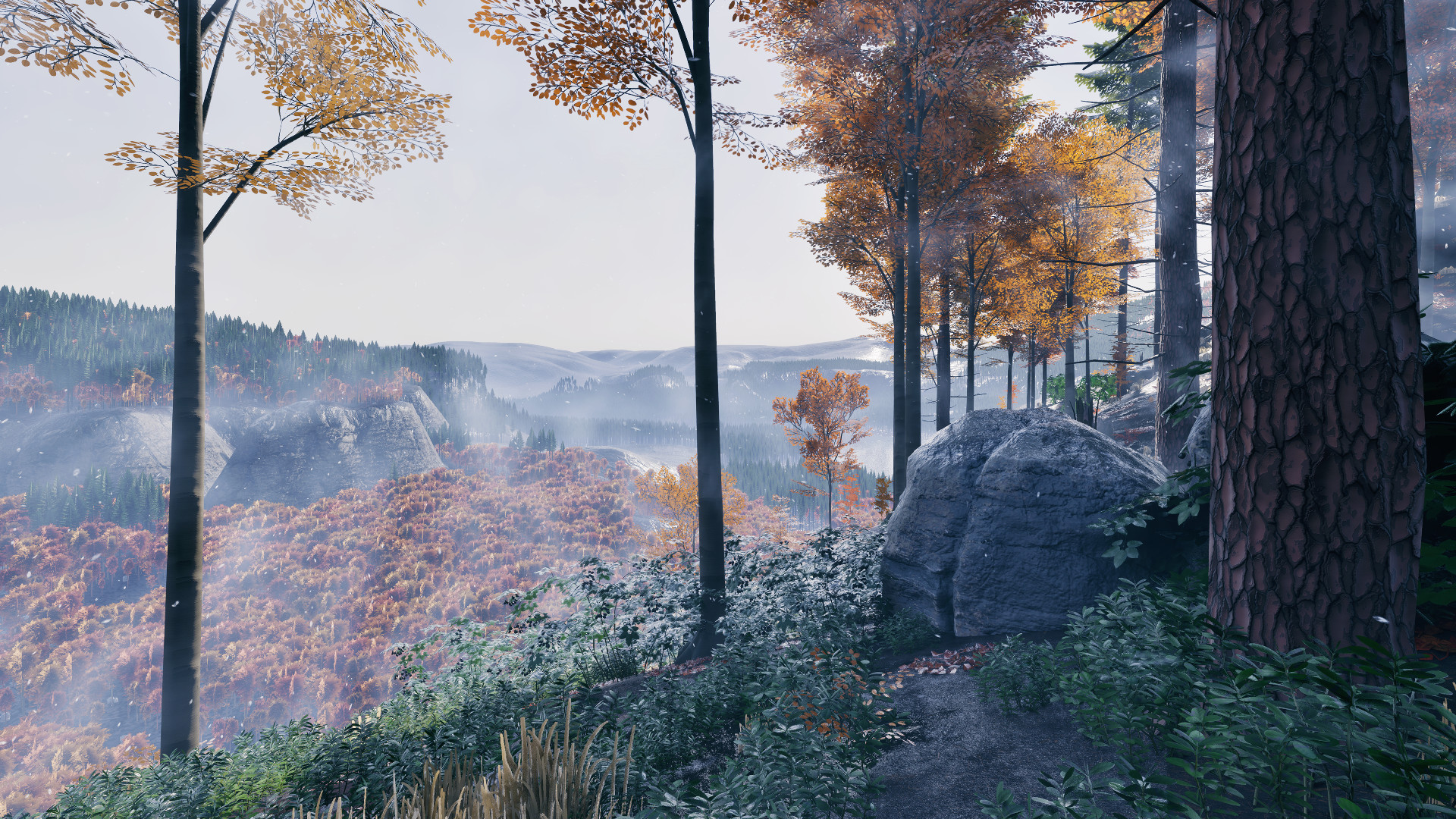"We try not to say 'fun'": Meet the devs behind the new survival game that puts the "human element" before letting you be a mountain-leveling demigod

Prologue is a survival game, but it's not just a survival game. The first title from PUBG creator Brendan Greene's new studio, it's also the first step on a years-long odyssey to make open-world games that will dwarf anything from this generation. And being part of that grand experiment means that it doesn't have to obey traditional genre laws.
"It's supposed to be as hard a survival game as you can make," creative director Scott Davidson tells me during my Prologue preview. From what I've seen of Prologue so far, he's right. Its simple objective - navigate to a weather station across a large open-world - belies a game that will kill you quickly and repeatedly. But beyond being a ruthless example of an often-unkind genre, it exists to do something else: Prologue is proof-of-concept of the terrain-generation tools that Greene and his team have been working on for three years. The survival elements, Davidson explains, go "on top" of that machine learning-driven world-generation tech. That means there are "limitations of what you can do," but it also means that the devs don't just have to stick to what's come before.
"When we're thinking of game mechanics or gameplay, we don't necessarily think 'you do A to do B', explains senior character artist Hakan Kamar. "I think there's a lot of preconceived notions when you say 'survival game'. People expect crafting, woodcutting, or whatever, just because of all the other titles that are out there. What we're trying to do is really put back the human element."
What that means, according to senior environment artist Will Nunes, is that Prologue should "mirror a lot of real-life mechanics," but that's easier said than done. Things like building a campfire or repairing a broken window are actions that you can do in the real world, but try and port those same actions into the game, and you'll find that they can often be "really clunky and hard to do." As a result, Nunes explains that Prologue attempts to "gamify some stuff and maintain a level of reasoning with others," but says that there's a "fine balance" to be struck.
Building blocks


That balance means that the team behind Prologue is reexamining the very idea of the survival game. The preconceived notions Kamar mentions are felt particularly keenly in a genre as uniform as this one, where hunger/thirst meters, build menus, and tech trees abound, but the Prologue devs have no great desire to stick to them. "You can try and deconstruct how we've already done things," Davidson says, "and then work out whether the reasons we're still doing them like that are valid."
"If they are, we will continue doing them that way, because probably-smarter-people-than-us have actually run all the numbers, and they tried every different option and they didn't do them. But sometimes you go back and you find you can do it differently." That approach has its pros and cons - you might find that you make a real improvement, but only if you're prepared to invest the time to find out that actually, the original method was fine all along. But Davidson defends his team's approach: "A lot of things become industry standards, and we very easily start a game and go 'right, we know all these things, let's just do it'. All without going 'but do we?'"
Consider, for instance, the act of lighting a fire in almost any survival game you've ever played. According to Davidson, "most players" would expect to gather a bunch of wood, select a 'craft campfire' option from some kind of build menu, and then select a dialogue option to set it alight. In Prologue, however, "we're not doing that." Instead, it's up to you to gather kindling and fuel, arrange them properly, and light a fire the 'right' way.
Sign up to the GamesRadar+ Newsletter
Weekly digests, tales from the communities you love, and more
That might work for something relatively simple, but it quickly scales in complexity. As Nunes points out, "if you're going to make it one-to-one realistic in real life, most people will look at it and go 'I don't know, I'm not an electrician'." Perhaps 'most people' could light a fire, but could they build a shelter or repair a generator? "You need to make a bar of entry for some of these things," Nunes continues, but you also have to consider "'is this actually compelling or fun?'"
Are ya winning?

"We really play on the delayed gratification of finding your own way."
Brendan Greene
'Fun' is an interesting concept for the developers behind Prologue. It's a word that Davidson says the team tries not to use. Instead, they seek immersion, the idea that the player is constantly making a series of small choices, which will add up over time to success - or more likely failure. "Brendan will say that he's very interested in the idea that a choice you made 20 minutes ago dictates whether you survive. But you won't know that until that specific point."
Speaking to the team, I'd already suffered at the hands of that design philosophy. Electing on one playthrough to not take a torch with me, I was so unable to navigate in the dark that I eventually starved to death despite the excellent gear I'd scavenged. Kamar points out that in those situations, you're essentially playing against the environment, picking up tools that you hope will help you survive the future obstacles you'll have to overcome. But that conjures its own problem - what if you never find those tools?
"That's something we're going to have to work out," Davidson says. "We've talked about this before - 'are we just going to make people quit out and start over because they know they can't win?'" For Nunes, "you always want an element of there being some chance," but Kamar points out that it's not all about giving the player what they want: "We feel like the bar of entry should be somewhat difficult. We really play on the delayed gratification of finding your own way. But it's funny - if you think about it, the moment a survival game stops being fun is if you stop surviving, if you have everything. It's like you're playing Call of Duty, and then the war is over."

I'm GamesRadar's news editor, working with the team to deliver breaking news from across the industry. I started my journalistic career while getting my degree in English Literature at the University of Warwick, where I also worked as Games Editor on the student newspaper, The Boar. Since then, I've run the news sections at PCGamesN and Kotaku UK, and also regularly contributed to PC Gamer. As you might be able to tell, PC is my platform of choice, so you can regularly find me playing League of Legends or Steam's latest indie hit.


